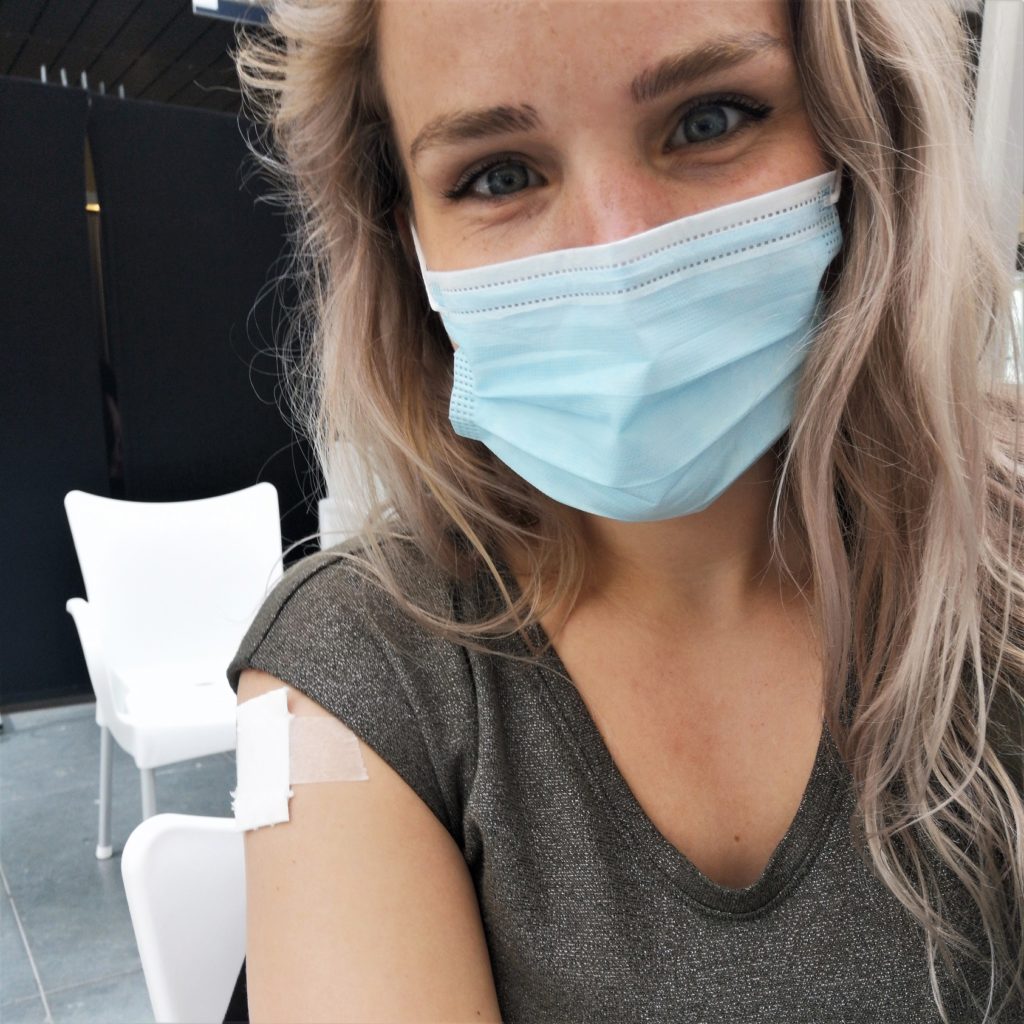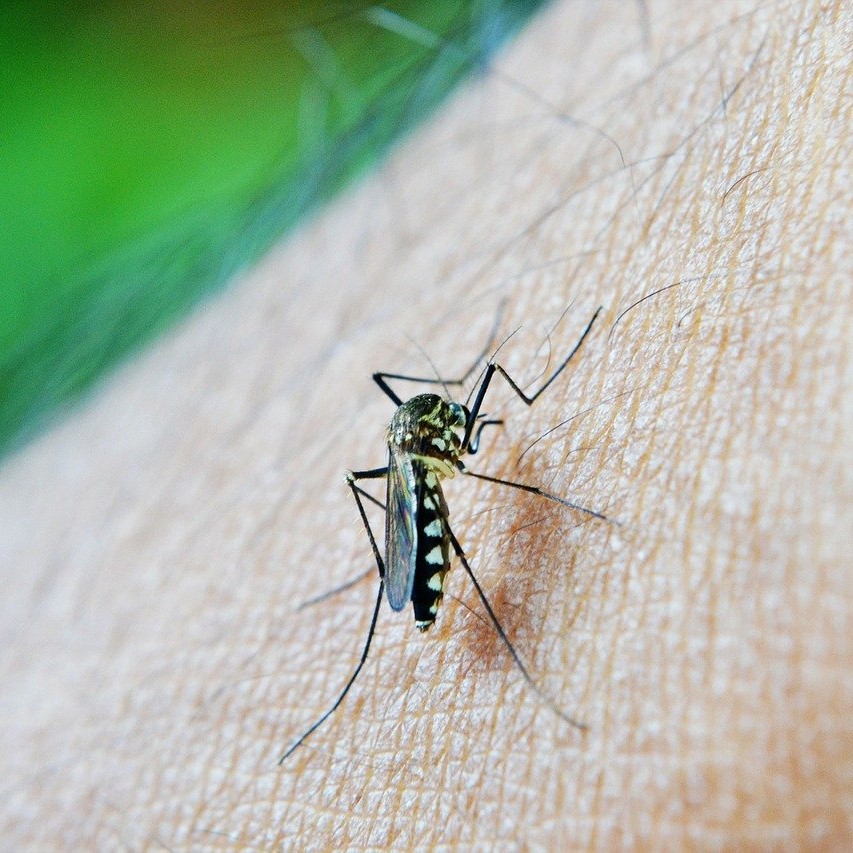Get your immunizations
planning a world trip

By Jaimy de Vries
This is perhaps a big decision to make, and it’s rather confusing. Hepatitis A and B are the only nearly universal vaccinations that most all travelers need. After that, it’s all a matter of where you are going and how much of a risk you want to take. Some countries say they require proof of certain immunizations to enter, but not all of them routinely ask for this proof. Since most of these are very expensive and the landscape is continually changing, it’s good to do some up-to-the-minute research
Be precautious
Some people get frustrated when researching the immunizations you’ll need for your trip. There’s a lot of information out there and it can be conflicting sometimes. Immunizations is a subject where a lot of people debate about: it isn’t a black and white situation. During the COVID-19 pandemic I discovered that there were a lot of different opinions about protecting yourself from the virus, about the precautions of the government and the immunizations. This caused a polarization in our society. But I don’t want to discuss the different opinions here in this blog. I just want to inform you which immunizations are necessary and which ones are only on recommendation. I will also tell you which immunizations I got to prevent getting sick on my trip.

It’s important to do some thorough research beforehand. Make sure you’ll start early in the process, at least more than six months before departure. That’s because some immunizations (like Hepatitis A+B) are series where there must be a time of 6 months in between. An other reason to do some thorough research is the fact that travel immunizations aren’t cheap – and most people don’t have health insurance that will cover the full cost of travel vaccines either. These are some important facts to take in consideration while planning a world trip.
So where do you start your research? First reading this blog article of course! After that you can start by going to your primary care physician, but most of the time they may not know any more about immunizations or malaria-resistant’s drugs than you do. This can be a shock for most people. ‘But where do I need to go then?’ You’ll probably be asking. Probably your primary care physician can refer you to a travel healthcare specialist or you can google them (now dr. Google comes in handy). They can give you a good advice, but still you need to make some decisions yourself. To help you out Bootsnall made a list of questions you can ask yourself to find out which immunizations you’ll need:
- Severity of illness: If I get the disease, will it seriously harm, maim, or kill you? Is there any cure? How long do symptoms last?
- Chance of illness: what are the changes that I will catch the disease? Does this vary form country to country? What can I do to lower the chance of getting sick without getting the immunization?
- Effectiveness of treatment: are the immunizations effective in all the countries I’m planning to visit? What are the chances of developing an illness even if you get a vaccine?
- Costs: how much does it cost? Is it worth spending that money in comparison with the severity and chances of the disease and its effectiveness? Does your insurance company cover the costs (if not, maybe change to an insurrance company that does - saves you a lot of money).
- Side Effects: Do you suffer from any drug allergies? Is there a chance of a severe reaction to the drug or even the treatments for the disease?
- Personal Responsibility: How good are you at taking precautionary measures such as not having unprotected sex, not eating seafood, and not drinking the local water or consuming fruits and vegetables? Can you remember to cover yourself with bug spray every half hour?
- Proximity to Adequate Health Care: Will you be traveling in big cities, with quick access to high quality health care, or will you be in a remote village, two days away via camel from the nearest poorly-equipped clinic?
Are immunizations mandatory?
First there are some universal immunizations that most all travelers need: like Hepatitis A and B. After the corona pandemic almost every country asks for proof of the serie of COVID-19 vaccines or a negative PCR-test, but for most countries it’s mandatory that you got vaccinated for COVID-19.
After those immunizations, it’s all a matter of where you are going and how much of a risk you want to take. Some countries say they require proof of certain immunizations to enter, but not all of them routinely ask for this proof. Since most of these are very expensive and the landscape is continually changing, it’s good to do some up-to-the-minute research.

List of immunizations
Most of the immunizations that were necessary I already got when I was a child or for my job. I already got the DTP and BMR shots when I was a child. And if you work in healthcare it’s obligated to be protected for hepatitis B. So my work covered the costs for these immunizations as well. This saved me more than 200 euro.
I wanted to have all the immunizations professionals advised me to have. I consulted the local health service called the GGD for advice. They advised me the following: Rabies, yellow fever, typhoid and Diphtheria Tetanus Polio (DTP) vaccine. They also recommend me emergency malaria pills.
Underneath a list of all the immunizations I got for my world trip.
BMR is the abbreviation of Mumps, Measles and Rubella. In the Netherlands, most children are vaccinated against BMR. People who are not, or not fully, vaccinated can get sick. Even people who have never had the disease can get sick. In a number of countries there’s a higher risk to get sick. If you’re not fully protected, it’s recommended to get a vaccine.
The coronavirus SARS causes the COVID-19 disease. The first symptoms looks like a cold or the flu. The course of the disease can differ from person to person. Some people don’t get sick or get sick only slightly from the virus. Others can become seriously ill and some die from the effects of the disease. Vaccination protects you against becoming (seriously) ill.
In 2020 to date, there is a COVID-19 pandemic. Many countries require you to be fully vaccinated for COVID-19.
DTP is the abbreviation of Diphtheria, Tetanus and Polio, diseases that we fortunately no longer see often in the Netherlands. The risk of contracting them is greater abroad. Vaccination with DTP offers protection against diphtheria, tetanus and polio. If you were born after 1-1-1950 and have had all childhood vaccinations, 1 shot is sufficient. You are then protected for 10 years. If you have never received the vaccinations, the recommends is to get three shots.
Hepatitis A (infectious jaundice) is an inflammation of the liver caused by a virus. The virus is transmitted through faecal-contaminated food and drinking water. A complete vaccination against hepatitis A consists of two shots. The first shot against hepatitis A provides protection for one year. The second, after at least six months, provides protection for at least 30 years.
You can combine Hepatitis A+B vaccinations.
Hepatitis B is an infection of the liver caused by a virus. The virus is found in blood and semen and is therefore contagious. A complete vaccination against hepatitis B consists of three shots in months 0.1 and 6 and gives a lifetime protection. To be sure of this, blood should be drawn one to three months after the last hepatitis B vaccination. Then the antibody value is determined (titer).
You can combine Hepatitis A+B vaccinations.
Malaria is caused by a parasite that is transmitted through a mosquito bite. There are different types of malaria. Malaria tropica is the most dangerous type that can even kill people. Urgent treatment is very important. The first symptoms of malaria looks like the flu, with high fever, chills, headache and muscle aches. The malaria mosquito becomes active after sunset. You can protect yourself against malaria by avoiding being bitten and by taking malaria tablets if necessary.
Rabies (rabies) is a serious infection of the brain. The virus is transmitted through the saliva of infected mammals through a bite, scratch or lick on a wound or through mucous membranes. Rabies is a very serious disease that almost always leads to death. Avoid all contact with animals in areas where rabies occurs. Vaccination consists of 2 shots.
Schistosomiasis (also called bilharzia) is an infection caused by a worm. The larvae first develop in a water snail. The water snail occurs in fresh water. The larva of the worm can penetrate the skin and can cause, among other things, a severe itchy rash, fever, back pain and paralysis. Avoid contact with fresh surface water where Schistosomiasis occurs. There is no vaccine against Schistosomiasis. Treatment with drugs is possible.
Tuberculosis (TB) is an infectious disease caused by the tubercle bacterium. The most common form of tuberculosis is pulmonary tuberculosis. Someone with open TB can transmit the bacteria to someone else through coughing. The other person then inhales the bacteria and can become ill. Depending on the destination, travel duration, travel circumstances and your own medical situation, we recommend vaccination or check for contamination before and/or after the trip.
Typhoid fever is a developing illness caused by a salmonella bacteria. The bacteria can be found in water and food. Typhoid fever mainly causes intestinal complaints. The advice to get vaccinated depends on the country of destination, the travel time, the circumstances of your stay and your medical situation. The vaccination consists of one shot and protects 60-70% against typhoid for a period of three years.
Yellow fever is a serious infectious disease. It causes bleeding, jaundice and fever. Hence the name “yellow fever”. Yellow fever can cause fever, muscle aches, headache, chills, nausea and vomiting after three to six days. It varies from a mild flu-like picture to a severe and often fatal form. The liver and kidneys are affected with bleeding from all body orifices. In the latter case, the death rate is high. You can protect yourself by getting vaccinated. A past infection leads to lifelong immunity. There is no treatment. Several countries make a yellow fever vaccination mandatory after being ‘in transit’ in a country where yellow fever occurs.
What about Dengue and Zika?
There is no vaccination for Dengue, schikungunya or zika. The only thing that can help is take precautions; like using insect repellent sprays and sleep under a mosquito net.
Make sure you have these items in your backpack:
- Mosquito net
- Insect repellent
- ORS, against dehydration in diarrhea
- Medication to stop diarrhea (for example: Loperamide)'
- Malaria pills
- Thermometer

Checklist
Make sure you start early in the process, at least more than six months before your departure. Then:
- Research which shots are necessary for the countries/regions you are visiting
- Research which shots are recommended for the countries/regions you are visiting
- Start compiling a list
- Go see your primary care physician and/or a travel doctor
- Check with your insurance company to see if they cover any of the immunizations
- Make an educated, informed decision
- Start making appointments-remember that shots like Hepatitis are done in a series, 6 months apart
- Get your shots, put your proof in a safe place, preferably with your passport
Special thanks to Bootsnall.com for all the guidelines and information on how to plan a round-the-world trip!